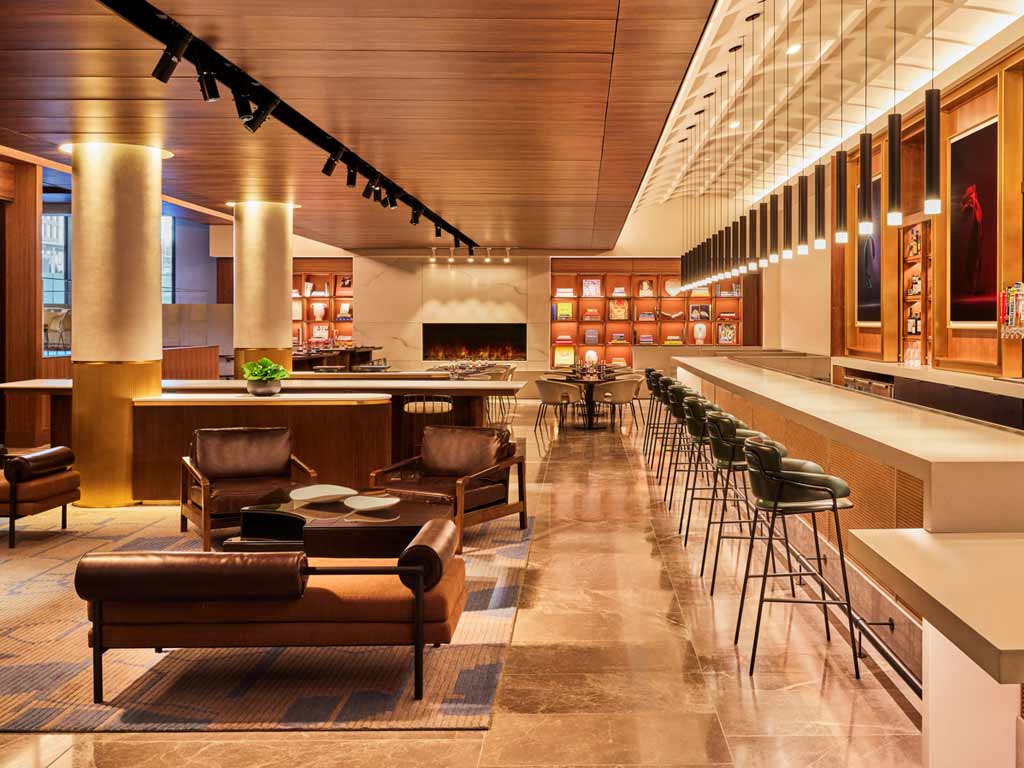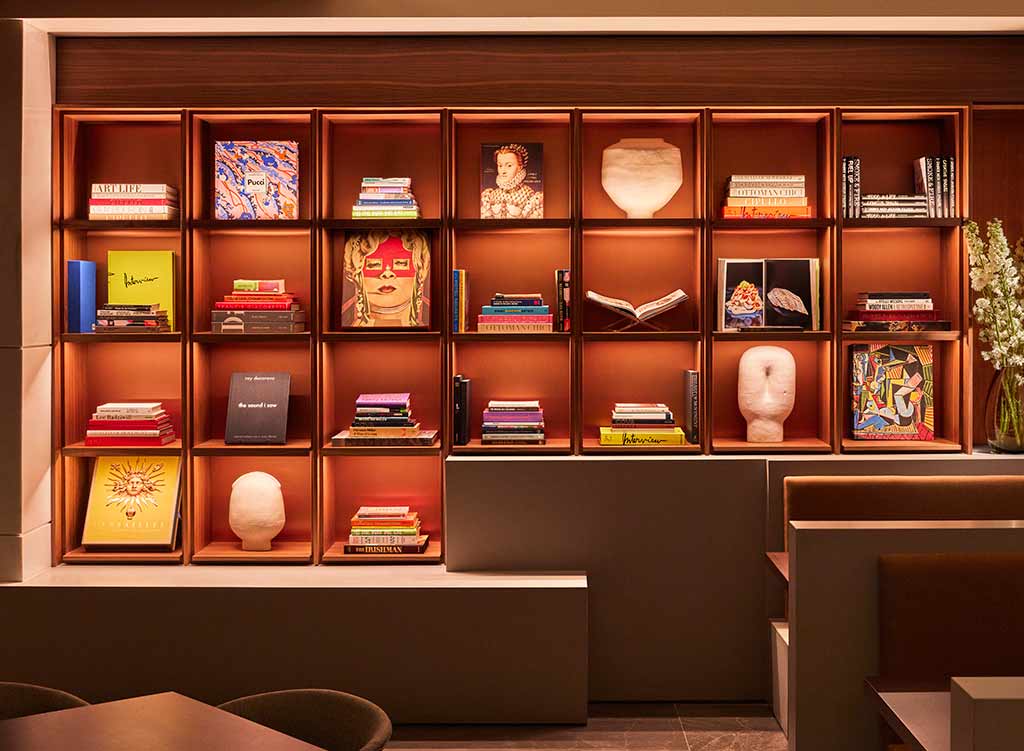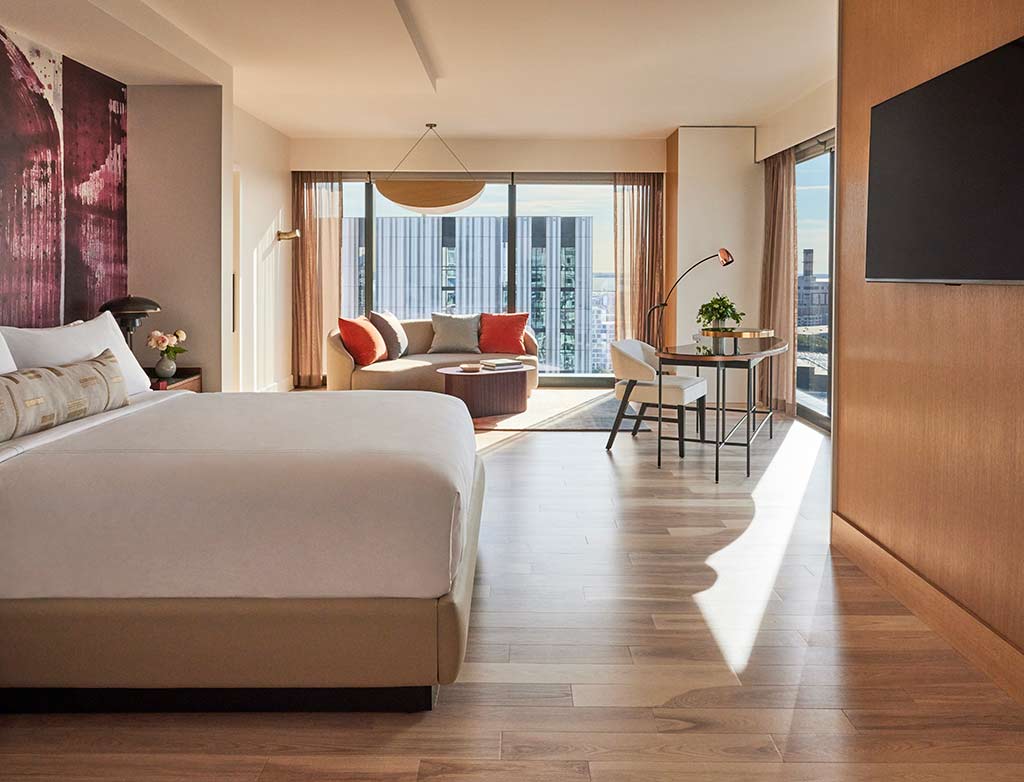The Omni Boston Hotel stands as a beacon of history and hospitality in the heart of Boston, its legacy spanning over a century and a half.
From its inception in 1855 by Harvey D. Parker, this iconic landmark has witnessed the evolution of Boston’s cultural landscape, leaving an indelible mark on the city’s history.
As the longest continuously operating hotel in the United States, the Omni Boston Hotel has welcomed every American president since Ulysses S. Grant and served as the esteemed venue for the renowned Saturday Club’s literary gatherings.
Its architectural grandeur, culinary innovations, and role in shaping political and cultural discourse underscore its enduring significance.
Join us as we delve into the rich tapestry of the Omni Boston Hotel’s history, a timeless legacy that continues to captivate and inspire. Stay focused.
Early Years of the History of Omni Boston Hotel
The Omni Parker House, nestled in the heart of Boston, is the longest continuously operating hotel in the United States.
Since its establishment in 1855, this iconic landmark has played a pivotal role in Boston’s history and witnessed numerous significant events and gatherings.
Notably, it has welcomed every American president since Ulysses S. Grant and served as the esteemed venue for the renowned Saturday Club’s literary meetings, further intertwining its legacy with that of American literature and politics.
Elaborated Points

Founding and Early Years: The Omni Parker House was founded in 1855 by Harvey D. Parker, an esteemed hotelier with a vision for luxury and hospitality.
From its inception, the hotel aimed to provide unparalleled service and accommodations, quickly establishing itself as the premier destination for travellers visiting Boston.
Presidential Patronage
One of the most notable aspects of the Omni Parker House’s history is its long-standing tradition of hosting American presidents.
Since the time of Ulysses S. Grant, the hotel has been a favoured choice for presidential stays during visits to Boston. Presidents have frequented its elegant halls, leaving behind a legacy of political significance and historic moments.
Literary Legacy with the Saturday Club
The Saturday Club, a gathering of prominent literary figures, held its meetings at the Omni Parker House, further enhancing its cultural significance.
Members such as Ralph Waldo Emerson, Henry Wadsworth Longfellow, and Oliver Wendell Holmes Sr. convened within its walls, fostering intellectual discourse and leaving an indelible mark on American literature.
Architectural Significance
The architecture of the Omni Parker House reflects the grandeur and elegance of its time.
The hotel is designed with meticulous attention to detail and boasts a unique blend of Victorian and Beaux-Arts styles, showcasing ornate embellishments and timeless craftsmanship.
Historic Events and Milestones
Over the decades, the Omni Parker House has witnessed numerous historic events and milestones.
The hotel has played a central role in shaping Boston’s cultural landscape, from hosting lavish social gatherings to serving as a backdrop for important political meetings.
Culinary Excellence
The hotel’s culinary offerings have also garnered acclaim, with its restaurants becoming destinations in their own right.
The Parker’s Restaurant, home to the original Boston Cream Pie and Parker House Rolls, continues to delight diners with its signature dishes and impeccable service.
Legacy and Continued Relevance
As the Omni Parker House enters its third century of operation, it continues to uphold its legacy of excellence and hospitality.
Renovations and modernizations ensure that the hotel remains a sought-after destination for travellers and a cherished piece of Boston’s history.
The Omni Parker House is a testament to the enduring allure of hospitality and the timeless elegance of historic landmarks.
Omni Boston Hotel’s Hosting the Nation’s Leaders

The Omni Boston Hotel, formerly known as the Omni Parker House, has long been esteemed for its tradition of hosting the nation’s leaders.
Since its establishment in 1855, the hotel has welcomed every American president from Ulysses S. Grant onwards, solidifying its reputation as a preferred choice for presidential accommodations during visits to Boston.
This enduring legacy of hosting the nation’s leaders underscores the hotel’s significance in American political history.
Historic Stays by Presidents
Over the years, the Omni Boston Hotel has hosted numerous presidents, providing them with luxurious accommodations and impeccable service.
From Abraham Lincoln to Barack Obama, each president has left their mark on the hotel, contributing to its rich tapestry of history and prestige.
Political Meetings and Events
Beyond serving as a lodging place for presidents, the hotel has also been the venue for important political meetings and events.
Whether it be informal discussions, official gatherings, or campaign stops, the Omni Boston Hotel has been a hub of political activity, facilitating dialogue and decision-making at the highest levels of government.
Symbol of Hospitality and Diplomacy
The hotel’s role in hosting the nation’s leaders extends beyond mere hospitality; it symbolizes diplomacy, goodwill, and the spirit of collaboration.
By providing a welcoming and dignified environment for presidents and their delegations, the Omni Boston Hotel fosters positive relationships and strengthens ties between individuals and nations.
Presidential Suites and Accommodations
The hotel boasts luxurious presidential suites and accommodations tailored to meet the needs of its distinguished guests.
With opulent furnishings, state-of-the-art amenities, and breathtaking views of the Boston skyline, these accommodations offer a sanctuary of comfort and prestige for visiting presidents and their entourages.
Security and Privacy
Ensuring the safety and privacy of presidents during their stays is of paramount importance.
The Omni Boston Hotel maintains stringent security measures and protocols to safeguard the well-being of its high-profile guests, allowing them to conduct their affairs with peace of mind and discretion.
Historical Significance
The Omni Boston Hotel’s association with American presidents adds to its historical significance and cultural relevance.
As a witness to pivotal moments in American history and a backdrop for presidential visits, the hotel embodies the enduring legacy of leadership, democracy, and the American spirit.
Continued Tradition
As the Omni Boston Hotel continues to evolve and adapt to the changing times, it remains committed to upholding its tradition of hosting the nation’s leaders with grace, professionalism, and excellence.
With each presidential visit, the hotel reaffirms its status as a beacon of hospitality and diplomacy in the heart of Boston.
Literary Connections with Omni Boston Hotel

The Omni Boston Hotel, formerly known as the Omni Parker House, has over a century of deep literary connections.
From its inception in 1855, the hotel has been a favoured gathering place for renowned authors, poets, and intellectuals, earning its place in the annals of American literary history.
Here are some of the notable literary connections associated with the Omni Boston Hotel:
The Saturday Club
Perhaps the most famous literary association with the hotel is its connection to The Saturday Club, a prestigious gathering of leading intellectuals, writers, and thinkers of the 19th century.
Established in 1855, the same year as the hotel’s founding, The Saturday Club held its meetings at the Omni Boston Hotel.
Members included literary giants such as Ralph Waldo Emerson, Henry Wadsworth Longfellow, Oliver Wendell Holmes Sr., and James Russell Lowell.
These luminaries convened regularly at the hotel, fostering intellectual discourse and shaping the course of American literature and culture.
Longfellow’s Residence
The renowned poet Henry Wadsworth Longfellow, a member of The Saturday Club, had a personal connection to the Omni Boston Hotel.
He resided in a suite at the hotel for several years, where he penned some of his most famous works, including “Paul Revere’s Ride” and “The Song of Hiawatha.”
Longfellow’s association with the hotel further solidifies its place in literary history and adds to its cultural significance.
Literary Gatherings and Salons
Throughout its long history, the Omni Boston Hotel has served as a venue for various literary gatherings, salons, and book readings.
Authors and poets have been drawn to its elegant surroundings and storied atmosphere, finding inspiration in its rich heritage and vibrant literary community.
These gatherings have provided opportunities for writers to connect, share ideas, and showcase their work, enriching Boston’s literary landscape.
The Birthplace of the Boston Cream Pie
While not directly related to literature, the Omni Boston Hotel is credited with creating the iconic Boston Cream Pie, a culinary masterpiece that has achieved legendary status.
Originally concocted by the hotel’s French chef in the 19th century, the Boston Cream Pie symbolises culinary innovation and cultural heritage.
Its association with the hotel adds another layer to its historical significance and cultural legacy.
Inspiration for Writers
Over the years, the Omni Boston Hotel has inspired countless writers and artists with its timeless charm and literary pedigree.
From its elegant halls to its rich history, the hotel continues to captivate the imagination of creatives. It serves as a muse for literary works set in Boston or features the hotel itself as a backdrop.
Preservation of Literary Heritage
The Omni Boston Hotel takes pride in its literary heritage and actively preserves its connections to the literary luminaries who once graced its halls.
The hotel honours its literary legacy through curated exhibits, guided tours, and special events and pays tribute to the writers who helped shape its identity.
Continued Relevance in the Literary Community
As the Omni Boston Hotel evolves with the times, it remains a cherished destination for writers, readers, and literary enthusiasts alike.
Its commitment to fostering creativity, intellectual exchange, and cultural appreciation ensures that its literary connections endure for generations to come, making it a beloved institution in Boston’s literary scene.
Architectural Evolution of Omni Boston Hotel

The architectural evolution of the Omni Boston Hotel, formerly known as the Omni Parker House, reflects the changing tastes, styles, and needs of both the hotel industry and the city of Boston over the past century and a half.
From its humble beginnings in 1855 to its current incarnation as a modern luxury hotel, the Omni Boston Hotel has undergone several significant architectural transformations:
Victorian Era Grandeur
When it was first built in 1855 by Harvey D. Parker, the Omni Boston Hotel exuded Victorian-era grandeur and opulence.
The original building featured intricate architectural details, including ornate mouldings, decorative facades, and elaborate furnishings, which reflected the prevailing architectural styles of the time.
The hotel’s exterior boasted a classic Victorian design characterized by its symmetrical facade, bay windows, and decorative ironwork.
Expansion and Renovation in the Late 19th Century
As the Omni Boston Hotel gained popularity and prominence in the late 19th century, it underwent several expansions and renovations to accommodate growing demand.
Additional floors were added to the original structure, and interior spaces were reconfigured to enhance guest comfort and convenience.
During this period, the hotel’s architectural features were updated to incorporate elements of the emerging Beaux-Arts style, characterized by grandeur, symmetry, and ornamental embellishments.
Modernization in the 20th Century
In the early to mid-20th century, the Omni Boston Hotel underwent significant modernization efforts to keep pace with changing architectural trends and guest preferences.
Renovations were done to update the hotel’s amenities, infrastructure, and interior design while preserving its historic charm and character.
Modern conveniences such as elevators, air conditioning, and telephones were installed, reflecting the evolving needs of travellers in the modern era.
Preservation and Restoration
In the latter half of the 20th century and into the 21st century, efforts were made to preserve and restore the historic integrity of the Omni Boston Hotel while ensuring its continued relevance and functionality.
Historic preservation initiatives aimed to protect the hotel’s architectural heritage and maintain its status as a cherished Boston landmark.
Original architectural features were carefully restored, and period furnishings were sourced to recreate the ambience of bygone eras, allowing guests to experience the hotel’s rich history firsthand.
Contemporary Upgrades and Additions
In recent years, the Omni Boston Hotel has undergone contemporary upgrades and additions to enhance its appeal and competitiveness in the luxury hotel market.
Modern amenities, state-of-the-art technology, and eco-friendly features have been incorporated into the hotel’s design to provide guests with a seamless and sustainable hospitality experience.
Adding new facilities such as fitness centres, spa facilities, and rooftop bars has further expanded the hotel’s offerings and appeal to discerning travellers.
Integration of Historical and Modern Elements
Today, the Omni Boston Hotel seamlessly blends historical architectural elements with modern design concepts, creating a unique and harmonious atmosphere that pays homage to the past while embracing the future.
Guests can admire the hotel’s historic facade and interior details while enjoying the comfort and convenience of contemporary amenities and services.
This integration of old and new ensures that the Omni Boston Hotel remains a timeless and iconic destination for travellers seeking luxury, history, and hospitality in the heart of Boston.
Cultural Impact of Omni Boston Hotel

The Omni Boston Hotel, formerly known as the Omni Parker House, has made a significant cultural impact on the city of Boston and beyond throughout its long and storied history.
From its role as a gathering place for literary luminaries to its status as a cherished Boston landmark, the hotel has left an indelible mark on the cultural landscape in several ways:
Literary Legacy
The Omni Boston Hotel has played a pivotal role in Boston’s literary history, particularly through its association with The Saturday Club and prominent writers such as Ralph Waldo Emerson, Henry Wadsworth Longfellow, and Oliver Wendell Holmes Sr.
The hotel’s literary gatherings and salons have fostered intellectual discourse and creative inspiration, contributing to the city’s reputation as a hub of literary culture.
Presidential Patronage
As the preferred accommodation for American presidents visiting Boston, the Omni Boston Hotel has witnessed numerous historic moments in American politics.
Its association with presidential visits adds to its cultural significance and underscores its role as a symbol of hospitality and diplomacy.
Culinary Tradition
The Omni Boston Hotel’s culinary contributions, including the invention of the Boston Cream Pie and Parker House Rolls, have become iconic symbols of Boston’s culinary heritage.
These culinary innovations have not only delighted guests for generations but have also helped to elevate Boston’s reputation as a destination for gastronomic excellence.
Architectural Landmark
With its distinctive Victorian and Beaux-Arts architectural styles, the Omni Boston Hotel is a testament to the city’s architectural heritage.
Its elegant facade and ornate interiors have made it a beloved landmark in the Boston skyline and a popular subject for artists, photographers, and filmmakers.
Cultural Preservation
Through its commitment to historic preservation and restoration efforts, the Omni Boston Hotel has helped to preserve Boston’s cultural heritage for future generations.
By maintaining its architectural integrity and celebrating its rich history, the hotel serves as a living museum of Boston’s past and a reminder of its enduring cultural legacy.
Community Engagement
The Omni Boston Hotel actively engages with the local community through various cultural initiatives, partnerships, and events.
From hosting art exhibitions and cultural performances to supporting local charities and organizations, the hotel contributes to the vibrancy and diversity of Boston’s cultural scene.
Tourism and Hospitality
As a premier destination for travellers seeking luxury accommodations and authentic Boston experiences, the Omni Boston Hotel is key in promoting tourism and hospitality in the city.
Its reputation for excellence and commitment to guest satisfaction have helped attract visitors worldwide, further enriching Boston’s cultural tapestry.
FAQs
What notable historical figures have stayed at the Omni Boston Hotel?
The hotel has hosted every American president since Ulysses S. Grant, making it a favoured choice for presidential accommodations during visits to Boston.
Additionally, prominent literary figures such as Ralph Waldo Emerson, Henry Wadsworth Longfellow, and Oliver Wendell Holmes Sr. were members of The Saturday Club, which held meetings at the hotel.
What culinary innovations is the Omni Boston Hotel known for?
The hotel is credited with inventing the iconic Boston Cream Pie and Parker House Rolls.
These culinary creations have become synonymous with Boston’s culinary heritage and continue to be enjoyed by guests and visitors alike as signature dishes of the hotel’s dining establishments.
How has the architecture of the Omni Boston Hotel evolved over time?
Originally built in the Victorian era, the hotel underwent expansions and renovations in the late 19th and early 20th centuries, incorporating elements of the Beaux-Arts style.
Modernization efforts in the 20th century preserved its historic charm while integrating modern amenities. Today, it seamlessly blends historical and contemporary architectural elements.
What cultural impact has the Omni Boston Hotel had on the city?
The hotel has left an indelible mark on Boston’s cultural landscape through its association with literary luminaries, presidential visits, culinary innovations, and architectural significance.
It serves as a symbol of Boston’s rich history, hospitality, and cultural heritage, attracting visitors from around the world.
Wrapping Up
The history of the Omni Boston Hotel is a testament to its enduring legacy as a cultural icon and bastion of hospitality.
From its founding in 1855 to its present-day incarnation as a modern luxury hotel, the Omni Boston Hotel has played a central role in shaping Boston’s history and cultural identity.
The hotel has left an indelible mark on the city’s cultural landscape through its association with literary luminaries, presidential visits, culinary innovations, and architectural significance.
As it continues to evolve and adapt to changing times, the Omni Boston Hotel remains a cherished destination for travellers seeking luxury, history, and hospitality in the heart of Boston. Thank you very much.
Christian VanDerslice